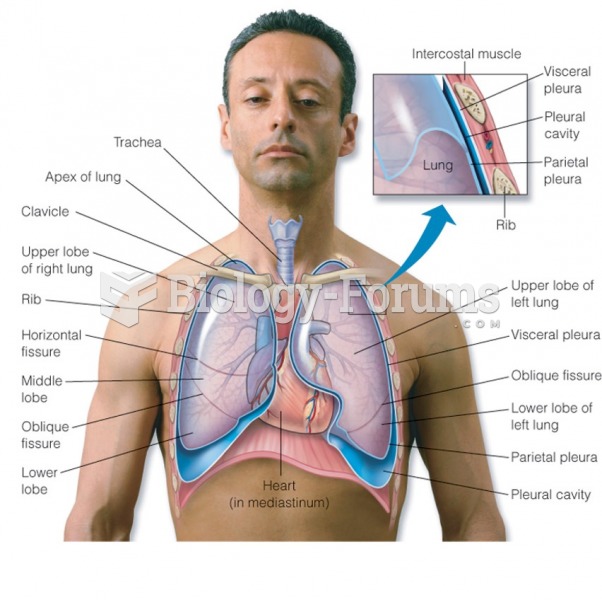|
|
|
Human kidneys will clean about 1 million gallons of blood in an average lifetime.
Excessive alcohol use costs the country approximately $235 billion every year.
In the United States, congenital cytomegalovirus causes one child to become disabled almost every hour. CMV is the leading preventable viral cause of development disability in newborns. These disabilities include hearing or vision loss, and cerebral palsy.
The first oncogene was discovered in 1970 and was termed SRC (pronounced "SARK").
As many as 28% of hospitalized patients requiring mechanical ventilators to help them breathe (for more than 48 hours) will develop ventilator-associated pneumonia. Current therapy involves intravenous antibiotics, but new antibiotics that can be inhaled (and more directly treat the infection) are being developed.







